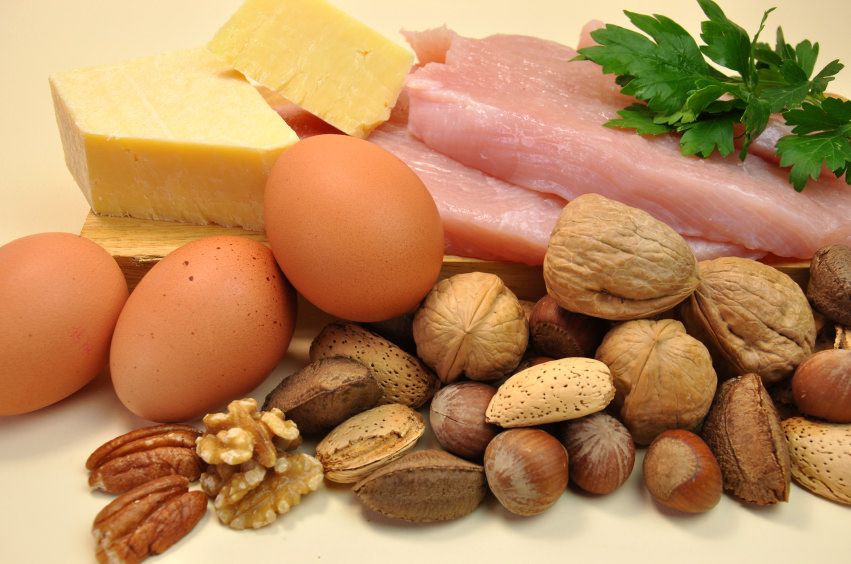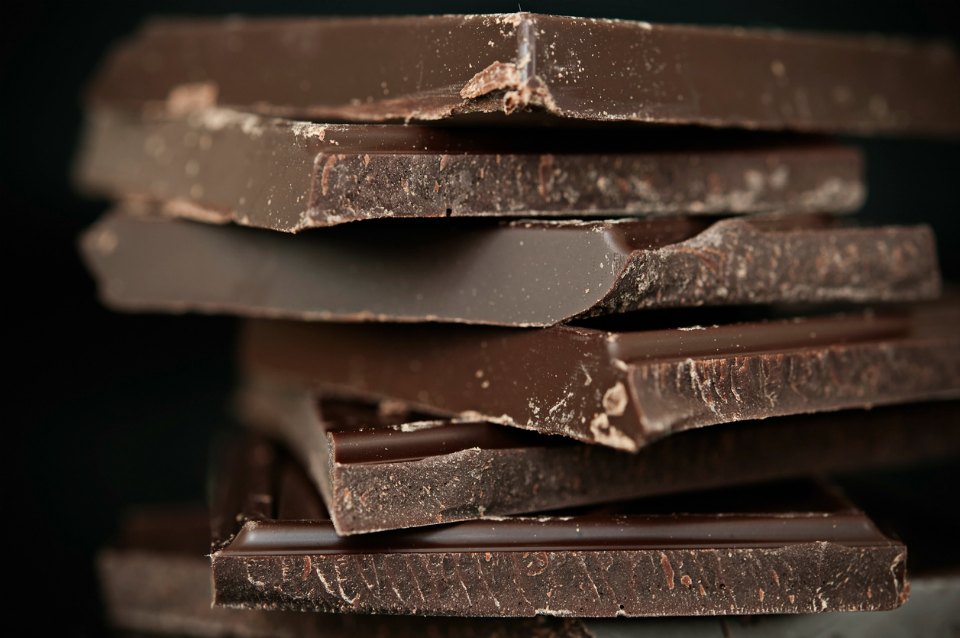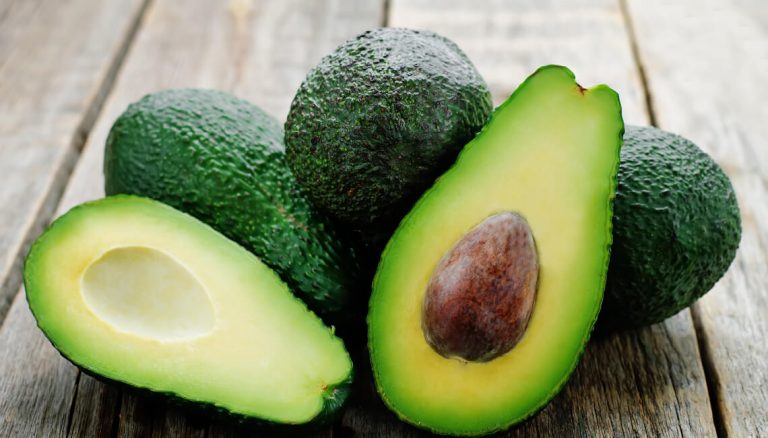Why am I always hungry all of the time?
Feeling hungry all the time makes it difficult to concentrate on more important things. Here are the top 10 reasons why you feeling constant hunger.
Why do I continually feel hungry?
A lot of people ask themselves this question and struggle with constantly feeling those pesky hunger pangs.
Even on a healthy diet, for some, it may feel like it never ceases.
When you are feeling hungry all of the time it makes it difficult to concentrate and pay attention to things at work or harder to find products. Plus, you may feel distracted all of the time with your kids.
However, you’re feeling excessively hungry all the time, it might not be because you need to eat. It could be down to another reason…

Here are 10 reasons why you’re inexplicably hungry all the time…
1. You’re not eating enough protein
Unless you’re literally starving to death, it’s quite impossible to be protein deficient but eating meals that are low in protein can make you feel like you’re not full and feel hungrier more often than not.
When it comes to proteins, they aren’t as easily digested as carbohydrates and fats. If you find yourself feeling unsatisfied with the toast you had for breakfast, you could try adding an egg or yogurt (which are high in protein) to your breakfast routine and this may help you feel full for a longer period of time.
The Healthy Mummy protein powders contain a range of different ingredients and sources of protein that are specially suited women’s dietary needs.
2. You’re consuming too much sugar
When you eat foods that are filled with sugar and nothing but sugar, your body absorbs it and then there’s nothing left and this could be why you always feel hungry.
What’s more, your body burns through sugar quickly and this is why you might still be feel like you could eat more.
Swap the cookie or candy for a piece of fruit or whole grains, which take longer to burn off. The fibre and water in the fruit will fill you up more.
Plus, it will also balance out your blood sugar levels, as this can effect your hunger levels.
3. You’ve started a new workout routine
If you’ve recently started the 28 Day Weight Loss Challenge and upped your activity level, then congratulations! However, your body might now needs to replenish its supply of glucose (sugar) in order to function properly.
Remember in biology class you learned about the “mitochondria: the powerhouse of the cell”? Well, this special cell organelle takes sugar and turns it into energy.
You must always make sure to refuel after exercising. Try choosing a nutrient and sugar dense option, like fruit, natural juices, and our Healthy Mummy smoothies.
Whatever you do, don’t let yourself go hungry! As this will lead to either binge eating or muscle loss in the long run. Hopefully as your body adjusts and you change your diet you will feel less hungry.

4. You’re suffering from sleep deprivation
In order to compensate for a lack of sleep, your body increases food intake. This is because sleep and appetite are closely tied within the endocrine system (this is the body system that controls hormones).
You may not have heard of the term ‘sleep hygiene’ before but it’s an important contributor to good quality sleep and helps starve off constant hunger.
While mothers typically lose more sleep than the average person (especially for mothers of newborn babies or early-rising toddlers) there are certain factors that you can control.
You may not be able to control how often your child cries in the middle of the night, but you can control certain elements of your ability to get to sleep.
Sleep plays an important part in weight loss, because several studies have linked sleep loss to decreased metabolic function, hormone imbalances and increased cravings for food.
To ensure you have good sleep hygiene make sure your bedroom is free from light sources (such as street lights or digital alarm clocks). You’ll have more chance of sleeping well, instead of staying up late craving junk food.
5. You’re not eating enough fats
Fat is not the bad. It depends on the type of fat you are putting into your body. Your cell membranes and nerve cells are all surrounded by fats. It’s also the macromolecule that has evolved to keep us warm and act as an energy reserve in times of trouble.
In fact, some fats are crucial to a healthy body.
When you decrease the amount of fat you’re eating, your body thinks it needs to start storing energy, so your brain turns on the hunger.
A well-balanced meal contains enough proteins and good fats — like monounsaturated fat in olive oil and polyunsaturated fat in nuts and seafood — to make you feel satiated and keep you that way for a few hours.
6. You’re emotional eating
Often you feel hungry because you may feel stressed. And this stress may cause you to feel like you need to emotional eat. Put simply, emotional eating occurs when things get tough or challenging, when you’re having a bad day at work, feeling sad and exhausted.
Eventually, your body becomes conditioned to look for food anytime stressful situations appear.
This makes sense evolutionarily, since stress usually meant famine back in the day. Our brain doesn’t understand the difference between “it hasn’t rained in a week and the crops are dying” versus “my boss is insane and has piled 10 projects on me”.
Instead of reaching for food for comfort, try going out for a walk or take a short 15-minute break to listen to music.
7. You aren’t drinking enough
You might feel hungry when you’re dehydrated for a few reasons.
One, water fills you up by both taking up space in your gastrointestinal tract and helping to maintain blood pressure. Second, people often confuse thirst or being thirsty for hunger.
Finally, you might find yourself craving juicy foods such as watermelon, apples, oranges, and other fruits. Before reaching for a snack, try drinking some water first.
8. You may be partying too hard
When you overindulge on the booze, your body needs to repair the damage done by the ethanol. Between the hangover and elevated liver enzymes, your body will require more proteins and more energy, so you end up eating more.
Anyone who’s ever been deathly hungover knows that the craving for greasy, fatty food is overwhelming. Take it easy on the partying and your cravings may die down a bit too.
9. Your diet consists of too many sugary drinks
It’s like we said about eating sugar. Once all that sugar from soft drinks has been absorbed, you’ll feel hungry again.
Unfortunately, given the high caloric content of these drinks, eating more means increasing your daily calorie intake. This, of course, leads to weight gain.
Swap soft drinks or juice for unsweetened, decaffeinated tea or even flavoured water.
10. You may have thyroid issues or another medical condition
Sometimes, your uncontrollable hunger has nothing to do with will power or lifestyle choice. Hormones drive our urges and cravings.
If you have an undiagnosed thyroid condition, it will make your metabolism go a bit wonky. This includes things like hyperactivity and feeling really hungry all the time.

What is polyphagia?
There’s a terms called polyphagia, which is a medical term that’s used to describe excessive hunger or an increased appetite. For the most part, it is one of the main signs of having type 2 diabetes.
Polyphagia is caused by a lack of insulin in the body, which causes the cells to believe that they are starving, even if there is plenty of glucose in the blood.
This leads to an increase in hunger and food intake, which in turn can cause weight gain and other health problems. Additionally, polyphagia can also be a symptom of other medical conditions, such as hyperthyroidism or depression.
If you are experiencing excessive hunger or increased appetite, it is important to talk to your healthcare provider to rule out any underlying medical conditions and receive proper treatment.
The link between hyperthyroidism and hunger
Your weight is directly linked to your hormones and is regulated by a hormonal system.
In fact, it’s a unique and complicated balance between what you eat, how much you exercise, the environment you are in and the way your body works.
If you feel hungry all the time it could be down to a medical condition called hyperthyroidism, also known as having an overactive thyroid.
This is where your thyroid makes and releases high levels of thyroid hormone and can make your metabolism speed up.
Symptoms include a increased appetite, weight loss, a rapid heartbeat as well as anxiety.
Here are some more important hormones and how they are linked to your hunger levels
Ways to balance your hormones to keep them in check
- Get enough rest
- Exercise often
- Take care of your gut health
- Reduce stress
- Eat little and often
- Lower your sugar intake
- Eat a healthy diet
- Meditate or switch off your devices to help you properly relax
- Reduce your calories if you are overweight

6 strategies to help you deal with emotional eating
1. Know your triggers
A good way to identify this is to keep a food diary of what you eat along with tracking your behaviour and feelings in the moments before you ate.
This will make clear the difference between emotional eating and hunger. Are you bored? Is your job highly stressful? When you realise what drives you to the fridge you have the chance to change the way you react to these situations.
2. Distract yourself
So you’ve identified your triggers now what? It takes roughly five minutes to distract your brain from craving that high-fat high sugar hit.
Put on some music and dance, call a friend or go for a walk down the road. The best distractions are those that take you far away from where the food is kept.
3. Stress relief
Let’s face it, stress is inevitable in our modern day lives which means we may turn to stress eating. But in reality, getting rid of the cause of the stress might not be feasible. Instead, why not try yoga or mindful meditation?
If all else fails to strike your interest, make sure you get enough sleep. Fatigue makes you more likely to emotionally eat.

4. Exercise!
Those people you hear that are addicted to exercising are not an urban myth. In fact, exercise works the same way as emotional eating does!
When we work out, proteins are released in the brain that not only make us feel good, it makes us happy.
Unlike emotional eating, these euphoric feelings last longer and give us more energy. Research shows a 20-minute walk can dramatically affect the release of chemicals in the brain so start small and increase your heart rate as your fitness gets better.
Try some of our quick workout videos from the 28 Day Weight Loss Challenge to get you started (you can even do them from your own home!).
5. Boredom
This is a big reason why people emotionally eat. In our highly stimulated, visual and fast-paced society, when we are faced with a break, some of us do not know how to handle it.
Why not try setting up a bucket list of things you’ve always wanted to do? Or if the opportunity presents itself reconnect with your partner, friend, sibling or parent.
When we involve ourselves with familial human interaction, our brain releases love hormones such as oxytocin, which doesn’t compare to a tub of ice cream anyway!
6. Seek professional help
Sometimes we can’t stop emotional eating on our own. It can be deeply rooted as a learned behaviour during childhood where, for example, you were rewarded consistently with treats for being good.
If you are looking for professional help for your emotional eating or eating disorder please contact Eating Disorders Victoria on 1300 550 236 or The Butterfly Foundation’s national helpline on 1800 33 4673.
Emotional eating is not a matter of willpower. If you pay attention to your triggers and commit to your strategies, your physical and mental health will turn out better for it!
10 proven ways to reduce hunger and appetite
1. Eat plenty of protein

High protein foods will help you to feel fuller for longer as it stays in the stomach longer compared to carbohydrates.
Protein also gets your metabolism firing which is great for weight loss. It’ll keep hunger pangs at bay and prevent unnecessary snacking as well as enabling us to build lean muscle. By getting more protein in your diet increases the release of the fullness hormone which in turn lowers appetite makes you feel fuller for longer.
Ensure that you are eating enough protein in your meals and snacks like nuts, salmon, lean meats (such as chicken and turkey), tofu, eggs, yoghurt, tuna and certain cheeses.
Adding a good protein powder to your smoothie is another great way to ensure you are getting a good dose of quality protein.
Check out these recipes from the 28 Day Weight Loss Challenge – 4 protein-packed dinners using ONLY 5 main ingredients.
2. Up your fibre
Fibre helps prevent weight gain, by reducing appetite and helping to normalise bowel movements Fibre-rich foods absorb more water, which helps to keep us feeling full.
There is some evidence that the weight loss effects of fibre target belly fat specifically. The best high fibre foods to eat include: chickpeas, apples, rolled oats, green beans, sweet potato and fresh berries.
Try our High Fibre Vegetarian Curry
3. Enjoy your morning coffee
Many people love to start their day with a coffee and that’s not necessarily a bad thing. There are a number of health benefits to coffee, one of which can be beneficial if you are watching your weight. Coffee may help reduce feelings of hunger and your desire to eat for a short time.
There are chlorogenic acids in coffee which are the same antioxidant dietary phenols found in apples, sunflowers, and pineapples—all foods that will also suppress the appetite.
Coffee contains plenty of caffeine which does suppress appetite for a short time but interestingly, decaffeinated coffee may produce an even higher reduction in hunger.
Try this delicious Rich And Nutritious Coffee & Date Slice from the 28 Day Weight Loss Challenge.
4. Drink more water
Sometimes when we think we’re feeling hunger pangs, it’s actually just your body alerting you that you need water.
Drinking water regularly helps, suppresses appetite, boost your metabolism and it also cleanses your body of waste and reduces the appearance of cellulite.
When you regularly sip on your water bottle, it stops you from retaining water, which can help you feel less bloated.
15 simple ways to up your water intake
5. Eat dark chocolate
There is stearic acid in dark chocolate that researchers believe can slow digestion, further increasing feelings of fullness. Also, it’s the bitterness in dark chocolate that is believed to help decrease appetite and lessen sugar cravings.
According to neuroscientist and author Will Clower, melting a small square of dark chocolate on your tongue for about 20 minutes before you eat can trigger hormones giving you the ‘I’m full’ memo.
Check out our amazing dark chocolate protein balls, click here for the recipe.
6. Have more ginger in your diet
There are many health benefits associated with ginger including reducing inflammation nausea and muscle pain. It also contains a digestive enzyme called zingibain, which helps the body break down protein. It is also thought to reduce hunger pangs.
Ginger also has anti-inflammatory and antibacterial properties and works wonders on bloat. Sipping on ginger tea before, during, or after a meal will help your body to stimulate saliva, bile, and gastric juices that aid in digestion.
Here’s our delicious recipe for Honey, Lemon And Ginger Chicken Stirfry.
7. Spice it up

If you love spicy food with chilli, here’s some good news! A study looked at the effects of capsaicin found in chillis and found that they may help decrease hunger and at the same time increase the fullness feelings.
Capsaicin in also reduces gas and bloating because it increases the flow of digestive enzymes through your intestines.
Try this recipe for Spicy Stuffed Capsicum.
8. Try Control X
Have you tried Control X? It’s s a delicious drink designed to keep you fuller for longer! It has been so popular with mums, putting them back in control how much they eat by making them feel fuller for longer.
It reduces hunger pangs and bloating to get you in control of your portion control. It will change the way you reach your goals! All you do is mix the sachet with 200mls of water and enjoy 30 minutes before a meal. It’s as simple as that!
Find out what mums are saying about it here!
9. Exercise more
Doing regular exercise has been shown to reduce hunger hormone levels as well as increasing the feelings of fullness. And the best thing about this is that you don’t even need to leave the house! And you certainly don’t need an expensive gym membership!
There are heaps of exercises you can do at home, you just need to get into the habit and make it part of your routine. You can use the multitude of exercises routines from our 28 Day Weight Loss Challenge App.
Every little bit counts. Keep as active as you can every day to really get your heart pumping and your energy firing so help stomach fat reduction.
For full body workouts – see these Easy At-Home HIIT Workout To Shred 510 Calories
10. Go to bed earlier

If you’re not getting enough sleep, your appetite and hunger can increase significantly. When you are tired you are more likely to reach for sugary snacks to try and give you an energy boost, which in turn can lead to unnecessary weight gain.
It has been shown that people that have a good night’s sleep (seven hours or more) are less likely to be bigger around their middles.









